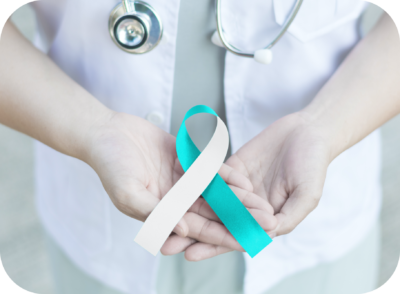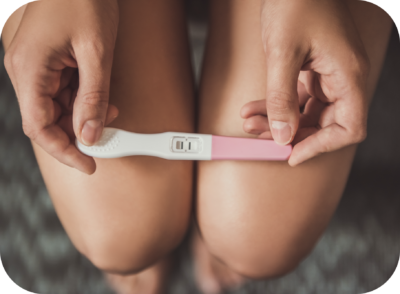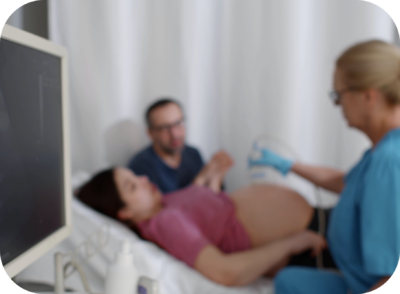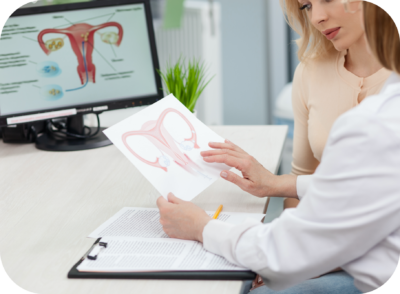Cervical Screening

The surgery provides cervical screening through both Cervical Check and also privately. Please contact the surgery for an appointment as soon as you receive your letter from Cervical Check. You will be asked a few questions by the reception staff so they can book your appointment on the appropriate date.
Cervical Screening (also known as smear tests) aims to pick up changes that can happen to the cervix. It does not test for cancer but helps prevent cancers from developing. All women between the ages of 25-65 years will be invited for free regular screening.
In most cases it takes 10-15 years for cells in the cervix to go from normal to pre-cancer to cancer. Regular screening allows early monitoring and treatment so that abnormal cells do not turn into cervical cancer.
For more information including how to register and to check when your next smear test is due please go to www.cervicalcheck.ie or call 1800 45 45 55.
Important Note: It is important to understand that ‘this is just a screening test’. We would always advise women despite a normal result, if you do develop any unusual symptoms including the ones noted below, to please make an appointment with a GP.
- Change in menstrual bleeding patterns including bleeding or spotting between periods
- Post-coital bleeding (bleeding after sexual intercourse)
- Post-menopausal bleeding
- Changes in vaginal discharge
Contraception And Family Planning

The surgery provides a range of contraceptive options. Please make an appointment with a GP to discuss what would be most suitable for you.
Methods of contraception available include:
- Short-acting contraception – these are types of contraception that need to be taken or changed regularly and depend on the user. The GP will be able to discuss these options.
- The combined oral contraceptive pill, also known as ‘the pill’. These tablets contain progesterone and oestrogen and prevent pregnancy.
- The progesterone-only pill is ‘the mini pill’. These tablets contain progesterone only and are taken every day. This may be an option if the combined pill isn’t suitable.
- The NuvaRing – a flexible ring containing similar hormones to the combined pill which is self-administered in the vagina and releases hormones for three weeks.
- The hormonal patch is also known as the ‘Evra’. This is a thin plastic square that contains hormones and can be self-administered every week.
- Long-acting contraception – these types of contraception are the most effective at preventing pregnancy as they do not depend on the individual taking it. The following methods are provided in the surgery.
- Depo Provera injection – a hormonal injection given every 12-13 weeks by a doctor or nurse.
- Implanon ‘the bar’ – a silicon rod containing hormones that is inserted by a doctor under the skin of the upper arm and lasts three years.
- Mirena/Kyleena/Jaydess IUS (Intrauterine system – hormonal coil). This is a hormonal T-shaped coil which lasts three to five years (depending on the IUS) and is placed into the womb by the doctor
- The copper coil IUD (Intrauterine Device). This is a T-shaped coil that contains copper, lasting five to ten years and is placed into the womb by the doctor.
- Emergency contraception. For example, the morning after pill – Levonogestrel or Ella One. These are methods of contraception that prevent pregnancy after unprotected sexual intercourse or if there has been a failed method of contraception and has to be given before three to five days.
- Sterilisation or vasectomy – please make an appointment with the GP to discuss for onward referral.
If you are looking for a long-acting form of contraception an appointment will be made to counsel you prior to fitting. It may be necessary to have some tests done before and you will be advised if this is the case.
There will be a charge for some of the longer-acting methods. If you are a medical cardholder, please note there may be a small additional charge for the longer-acting options.
Please note that for contraception renewal, patients need to attend a contraceptive check annually with either the nurse or GP. This is to ensure that you continue to be on the correct method of contraception and that there are no medical changes.
Useful websites for further information:
Crisis Pregnancy

The surgery provides a non-judgmental service to all women. We understand that an unplanned pregnancy can be both confusing and worrying. If this is the case, please contact our team to speak to a GP or ring ‘My Options’ on Freephone 1800 828 010.
Useful websites for further information:
Antenatal And Postnatal Care

The maternity and infant care scheme in Ireland allows free maternity care during pregnancy as well as a two week and six week postnatal check. It involves a shared care approach between the surgery and the hospital obstetric team.
We would advise you to make an appointment as soon as you find out you are pregnant. Please bring a urine sample on your first visit.
Useful websites for further information:
Fertility Issues

Around one in six heterosexual couples in Ireland may experience infertility issues. Approximately 85% of couples will conceive a child naturally after one year of trying. This figure rises to 95% after two years.
If you have concerns about your fertility, please make an appointment. We will be able to offer advice, do any necessary examinations or tests and if needed refer you for appropriate treatment.
Useful websites for further information:
Breast Care

If you notice any symptoms or changes in your breasts or become concerned about any breast problem, make an appointment with our doctors. We will discuss your history and perform an examination to help us decide how to manage you further.
All women between the ages of 50 to 69 years will be automatically be invited to get a mammogram every two years through the breast screening programme. However, it is worthwhile checking that you are registered on the system. This is very straightforward and can be quickly confirmed on the BreastCheck website or freephone 1800 45 45 55.
Useful websites for further information:
Menopause Management

All women experience menopause. It is caused by a reduction of hormones and naturally occurs as a woman gets older. It can also happen to women have received specific forms of treatment such cancer treatment or surgery to remove ovaries.
Menopause usually happens to women when they reach their late forties, however this can occur earlier. The average age of menopause is 51. Menopause is defined as ‘the last menstrual period’. Many women experience menopausal symptoms for some years before their periods have stopped, this is defined as the perimenopause.
It is thought that 70% of women will experience menopausal symptoms to some extent and can have huge impact on daily lives. The menopause can have a negative impact on women’s health and wellbeing and we would recommend making an appointment with the GP. We will be able to advise lifestyle changes as well as discuss options to manage your symptoms including HRT (Hormone Replacement Therapy).
HRT replaces the hormones that are low or have been lost. Despite how HRT has been viewed in the past, it is generally thought that the benefits outweigh the risks. Not only can it help menopausal symptoms but it can also reduce your risk of osteoporosis and in some women can be cardioprotective.
Useful websites for further information:


Leave A Comment
You must be logged in to post a comment.